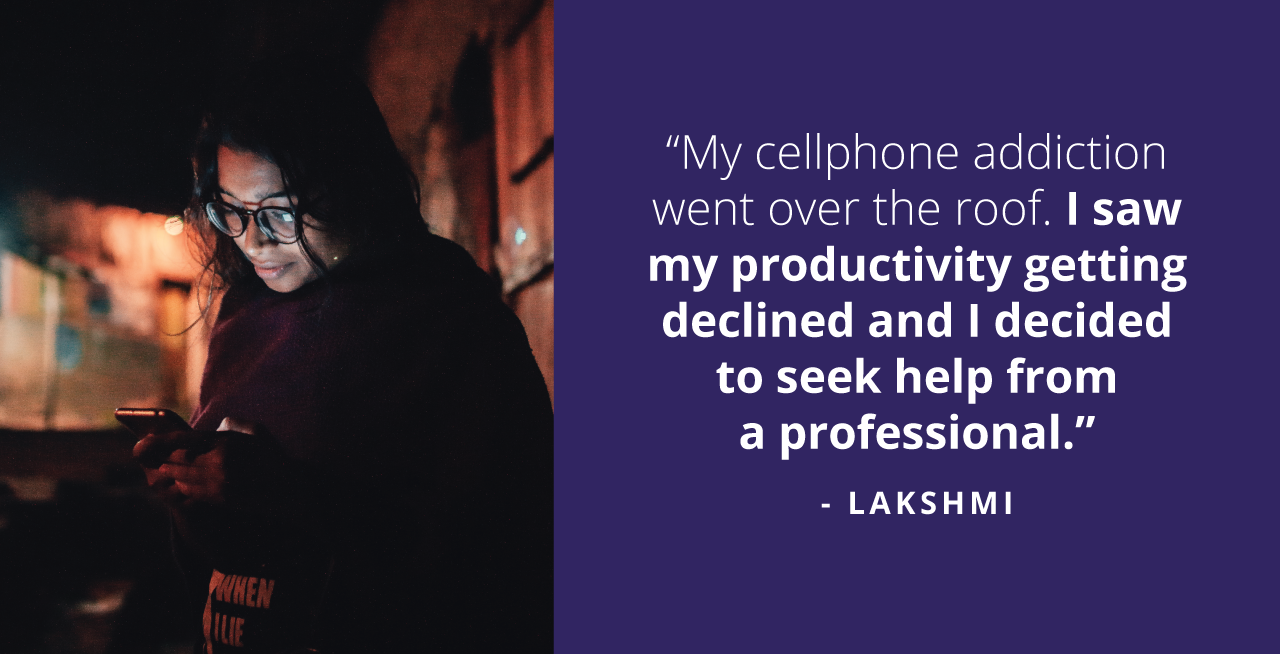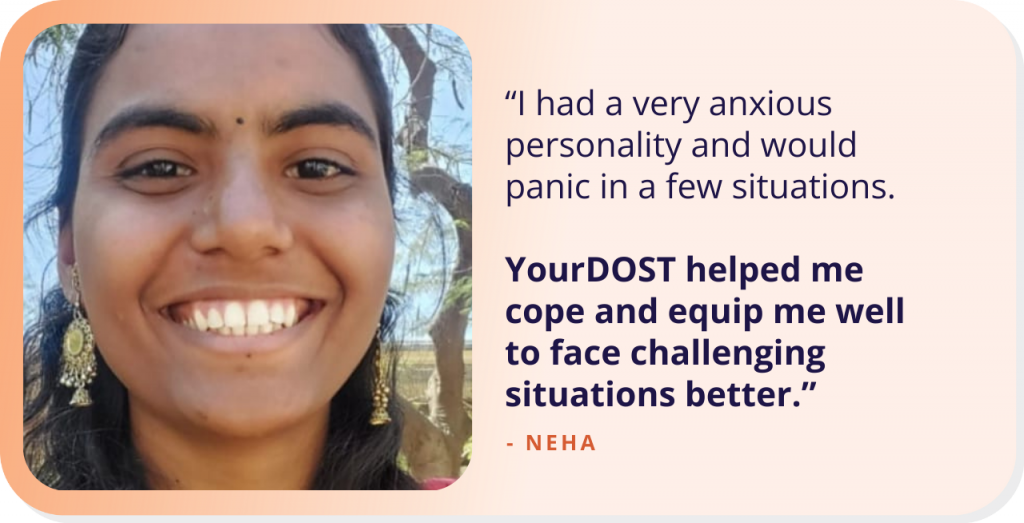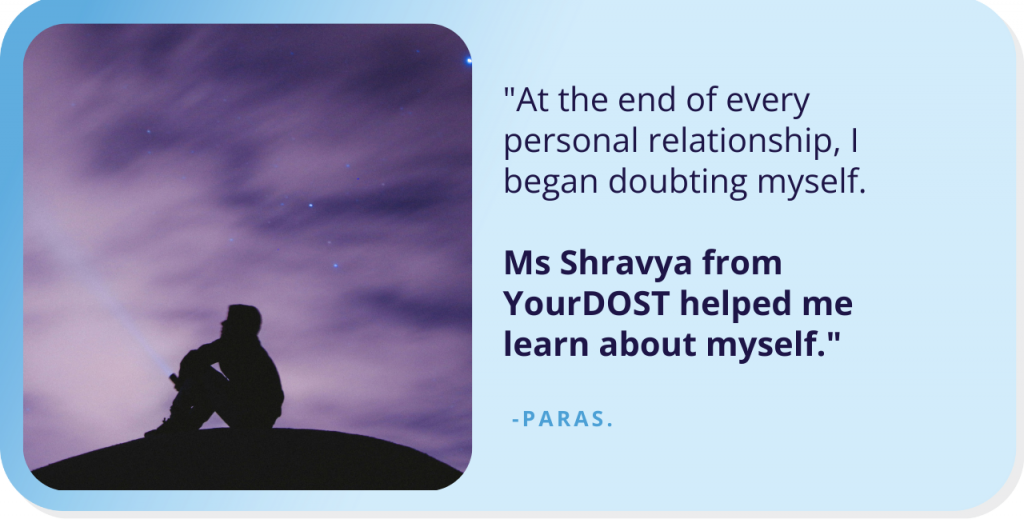
4 things You Should Stop Saying To an Anxious Colleague Right Now

Research suggests that nearly 40% of employees experience persistent stress or excessive anxiety in their daily lives. So there is a good chance that you may already know a colleague with anxiety who you want to help!
Supporting someone with anxiety is not as easy as it seems.
Even positive phrases like ‘Don’t worry, it’ll all be fine’ often oversteps the boundary between concern and negligence. Worse: It ends up negating the feelings and belittles the experience of the anxious person.
The least you could do in such situations is not make it worse.
Here are four things you should never say to an anxious colleague and what you can do instead –
1. “Get over it – stop thinking so much!”
Research says 31% of employees are scared of being labeled ‘weak’ if they open up about their stress or anxiety. Asking your colleague to ‘get over it isn’t helpful at all, for if they could- they definitely would! When you ask your colleague to ‘stop overthinking’, you’re shutting them off. Even worse, it might make them feel like they can’t handle their feelings well.
What to do instead?
Remember: Anxiety doesn’t work like this, it often requires help.
Here’s how you can offer it –
- Make yourself available even if you don’t understand what it feels like
- Offer to listen to the ‘what-ifs’ and the ‘worst case scenario’ patiently
- Ask them about the likelihood of their fear coming true and what can help
- Encourage them to look at how rational their thought is
- Help them find treatment by introducing them to the support in-house/outside work
2. “Try this/that, and you’ll feel so much better”
No, eating a balanced diet doesn’t cure anxiety. Neither does ‘forcing a laugh’ or some ‘essential herbal oils.’ While certain physical activities can help some people manage their anxiety, no cure fits all. Claiming to have ‘a solution’ by making random suggestions only makes it worse for they are nothing but temporary gimmicks with a dicey success rate.

What to do instead?
Remember, even if something has helped a person you know, it may not make your colleague feel better at the moment.
A fair method to tackle the situation would be to-
- Ask – “Can I help somehow?” and offer assistance in completing a job, preparing the ppt, etc
- Not quiz them about all the techniques you know and if they’ve tried them before
- Respect their boundaries at work if they refuse any help
- Help them practice/implement whatever they think can help at the moment, besides work
3. “Why would you even worry about that?”
Research suggests that 20% of employees fear being laughed at or not taken seriously, and 34% fear their boss would interpret their anxiety as lack of interest or unwillingness at work. Your colleague doesn’t know why he worries/thinks about what they do. At the moment, worrying about anything is not a conscious choice that your colleague makes. It just happens naturally and may not have a reason to second itself.

What to do instead?
If your colleague is anxious and worrying, they feel threatened or endangered.
Here’s how you can help them feel better without making them feel guilty-
- Refrain from using ‘negative language’ like ‘critical’, ‘tough’ that heightens anxiety
- Rethink your light-hearted comments and avoid blowing up with criticism
- Provide reassurance by reaffirming their strengths and acknowledging their performance
- Be careful about your body language by avoiding rolling your eyes, frowning, etc.
4. “X/Y/Z makes me panic too”
Statistics suggest that even though 35-50% of adults experience one panic attack in their lifetime, that does not mean they live with anxiety/anxiety disorder. A person living with anxiety may/may not encounter a panic attack. Unless you have an anxiety disorder, your rational feelings do not equate with the irrational thoughts of your colleague.

What to do instead?
While your intention may be to offer help, comparing your situation to theirs can make it worse.
Here’s how you can still offer support by not diminishing their experience-
- Instead of asking them to ‘calm down,’ offer a hug or a walk outside the premises
- Instead of asking them to ‘just breathe’, ask if they’d like to take some deep breaths with you
- Instead of assuring that ‘it’ll all be over soon,’ shift the focus to something that helps them feel empowered
- Instead of initiating a comparison, validate their emotions and individual suffering
- Instead of asking them to be positive, ensure they feel secure to share their negative emotions
Anxiety often comes with uncertainty, irrationality and anticipation. Sometimes, what might have helped before may not help anymore. Other times, you might not be able to help at all. The idea is to still commit your presence throughout their ups and downs.So how do you create engagement that interests all? YOU DON’T.
With that, you will never make things worse – if not better.








